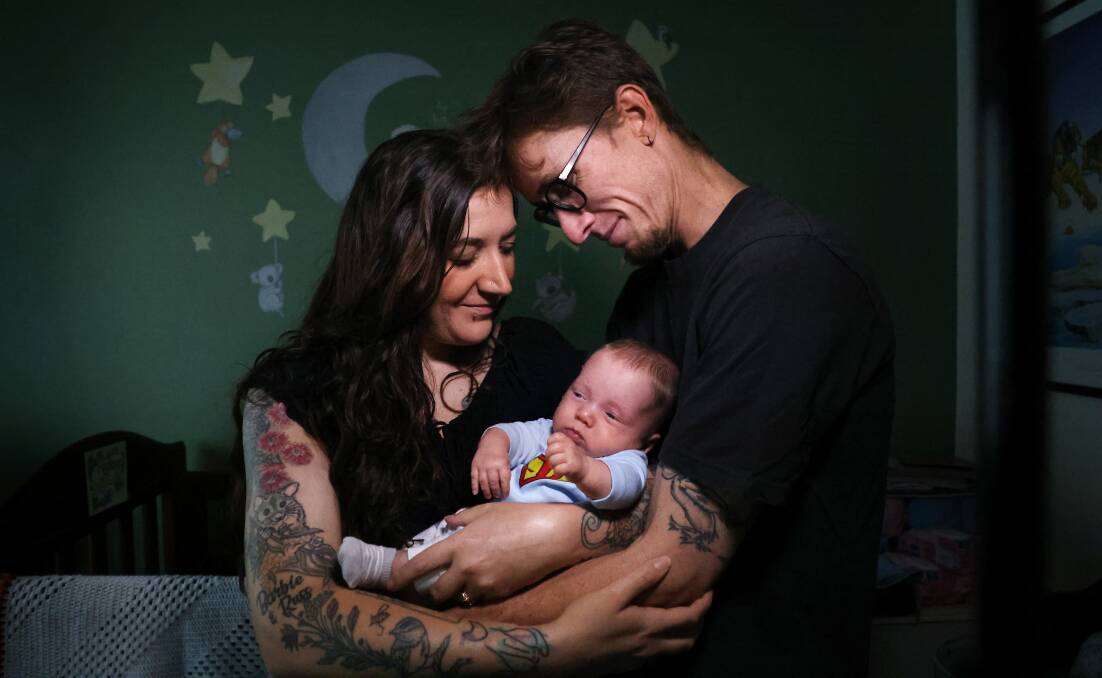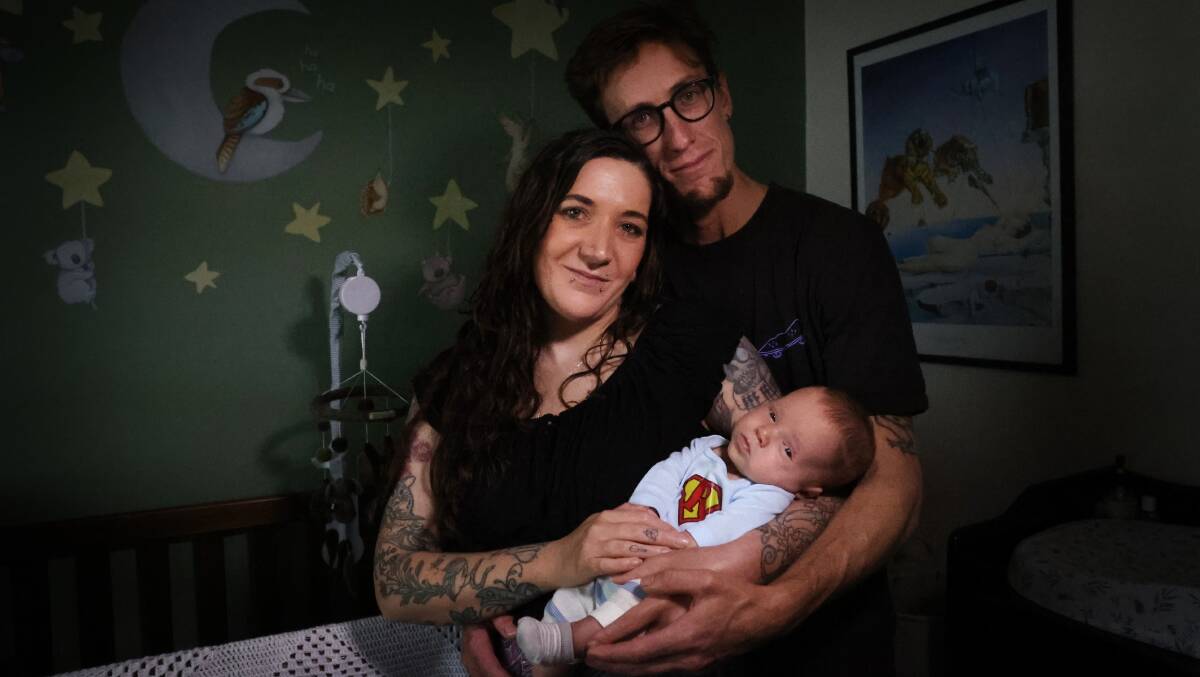
When Laura and Matthew Lee finally brought their tiny baby boy Reggie home from hospital, she had used up more than half her government parental leave and he had taken nearly six weeks of unpaid leave.
Subscribe now for unlimited access.
$0/
(min cost $0)
or signup to continue reading
They were thrilled to have their newborn son - who was born weighing just over a kilogram in June - tucked up with them at home in Mangerton like they had imagined instead of in a neonatal unit.
But at the same time, being back in their own surroundings meant the realities of what they had been through since Reggie's birth at 27 weeks started to come crashing down.
"Reggie was on track to be around 4.5kg, so we had all these clothes ready thinking we were going to have a chunky monkey and we ended up with a little micro premmie that wouldn't even fit into seven zeros," Ms Lee said.
"You expect to have that classic moment with the baby on your chest, but instead he was taken away to a different hospital the night he was born and I didn't get to hold him until two days after he was born."
When Reggie was allowed home in August, the family had spent 60 days at four different hospitals, which meant Ms Lee was well into using up most of her 18 weeks government leave.
"I was lucky to also have leave from my employer, but if it was just the [government] parental leave for me I would have been in the hospital two out of the three months that was provided by the government," Ms Lee said.
"In the months after we got home he was having around two appointments a week, because he still had a lot of extra health needs, so I can't imagine returning to work at that time."
The Lees are among many parents of premature babies joining a new campaign for the federal government to introduce additional parental leave for families with children who require neonatal care after birth.
Premature newborn advocacy group Miracle Babies Foundation is pushing for Australia to introduce up to 12 weeks of additional parental leave for families who spend at least two weeks in hospital after birth.
With the leave proposed to be allowed on a needs basis depending how much time is spent in hospital, it would bring Australia into line with New Zealand and Britain.
The foundation will launch a petition this week calling for the change, as it says the parents of the more than 48,000 newborn babies are slipping through the cracks.
Murdoch Children's Research Institute researcher Associate Professor Alicia Spittle says current parental leave legislation does not take into account the time that parents of premature or sick babies spend in hospital.
"As a result, parents are often forced to return to work while their baby is still in hospital, or face leave without pay or even resignation," she said.
"This places a massive financial burden on families who are already in a traumatic and overwhelming situation."

With Reggie now five-months-old, with a corrected age of two months, the Lees are doing well, but are still recovering, both mentally and financially, from their experience.
"While you're in the NICU, you don't really have time to think about your own emotions and what you're going through - it's all about the baby and it doesn't really hit you until you get home," Ms Lee said.
"Parents who have gone through having a baby in the NICU are more likely to have postnatal depression, so obviously having time off that isn't in a hospital setting is beneficial, and you need that extra time at home to kind of gather yourself and your thoughts together."
Mr Lee said they were also still trying to make up for the money they lost when he had to take unpaid leave from his job as a self-employed contractor.
As the non-birthing parent, he was entitled for two weeks' leave which he took when Reggie was born, but he then had to decide whether to return to work leaving Reggie and Laura in hospital in North Sydney, or go unpaid.
"We chose the latter, and I spent the first month of Reggie's life off work while we were up in Sydney, and then when he came back to Wollongong hospital, I worked part time," Mr Lee said.
"Then when he came home, I took an additional two weeks off as we settled in at home, so I took a total of about seven or eight weeks off since his birth."
"We're still feeling the effects of me having that time off and it's definitely had a knock on effect."
"Having additional support would not only benefit the parents but ultimately benefits the child the most, because easing the financial stress in turn reduces emotional stress, which then allows the parents to be more engaged in providing the care and support that their baby needs."
Reading this on mobile web? Download our news app. It's faster, easier to read and we'll send you alerts for breaking news as it happens. Download in the Apple Store or Google Play.


